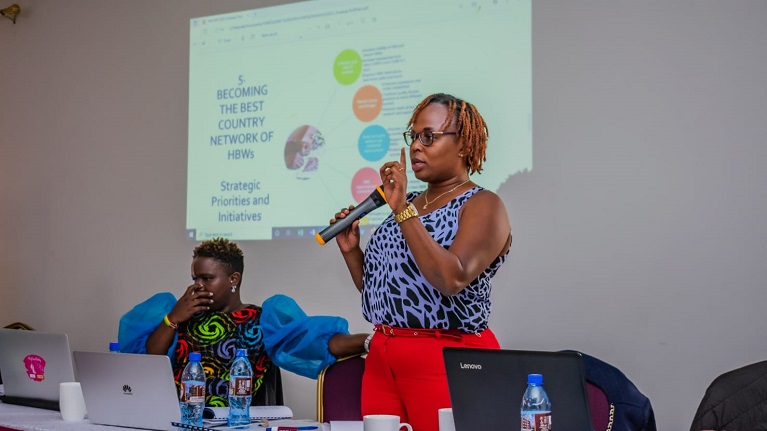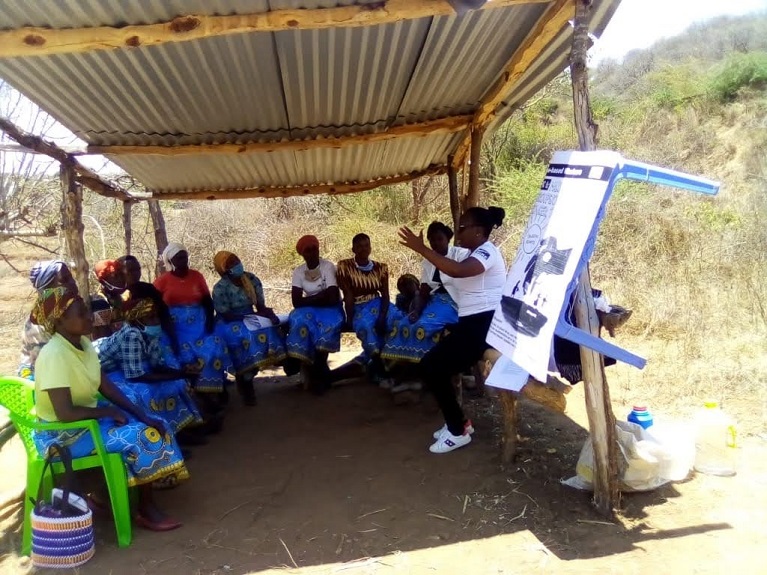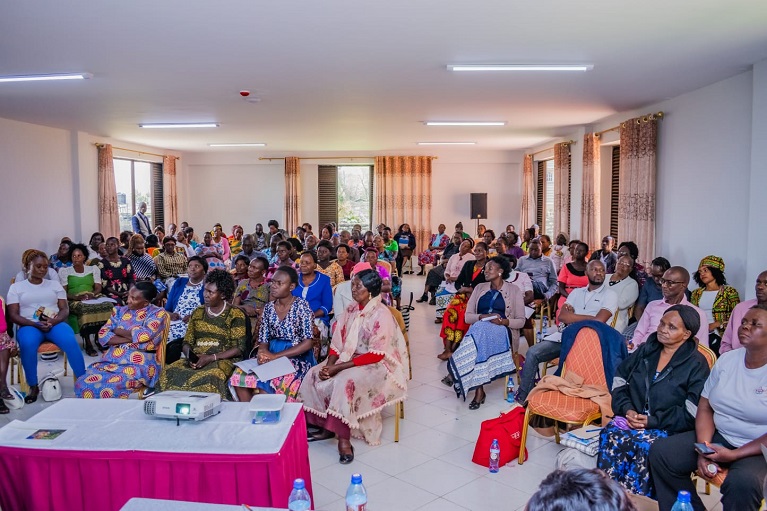Spotlight Interviews with Co-operators
Interview with Elizabeth Nzilani Peter – Machakos Cooperative Union
“Spotlight Interviews with Co-operators” is a series of interviews with co-operators from around the world with whom ILO officials have crossed paths during the course of their work on cooperatives and the wider social and solidarity economy (SSE). On this occasion, ILO interviewed Elizabeth Nzilani Peter, Chief Executive Officer of Coffee Marketing at Machakos Cooperative Union in Kenya, and partner of the Women in Informal Employment: Globalizing and Organizing (WIEGO) network.
Could you tell us about yourself and how you got involved in cooperatives?

Using my diverse experiences and skills, and with the support from WIEGO, I have been actively involved in organizing and mobilizing home-based workers (HBWs) in Kenya since 2012. Initially HBWs did not identify themselves as workers, whether own-account workers or subcontractors. They used to view themselves as microentrepreneurs, primarily seeking market access rather than as workers seeking recognition to advance their rights as workers.
Home-based workers produce goods or services in or near their homes for local, domestic or global markets."

What does the Machakos Co-operative Union do?
Machakos Co-operative Union (MCU) supports its members in production, processing, and marketing. It aims “to improve livelihoods of farmers, producers and other shareholders by supporting production, processing and processing of high quality products.” In recent years, the MCU introduced livelihood projects which strengthens solidarity and mutual aid among the HBWs and improved their standards of living.What are the challenges and priorities that home-based workers in Kenya face?
HBWs in Kenya face the following challenges:- Lack of recognition especially by the government. HBWs demand recognition as workers and decent working conditions in the global supply chains;
- Lack of market access for products such as baskets, woodcarvings, pottery, jewelry, beadwork;
- Lack of appropriate tools while processing the raw materials and during production;
- Adoption of modern technology especially in communication and production and processing;
- Lack of decent working conditions working under hot sun, rain and flood at times; and
- Organizing to build power to achieve concrete improvement in their lives.
How does the Machakos Cooperative Union work with home-based workers in Machakos, Kenya?

One of its main objectives is in facilitating market access for handicrafts and coffee produced by HBWs. This has been adversely affected by the global market prices, Covid-19 pandemic and competition with commercial producers who produce similar products in large scale while HBWs products are handmade. Climate change has also adversely affected our products especially due to lack of raw materials and impacting the quality of end products especially for coffee.
In production, we support them with product development and farm inputs especially for coffee farmers. MCU also offers technical support to the HBWs. In processing, MCU supports the HBWs in labelling, packaging, logistics and warehousing before the final product reaches to the market. Value addition has also been embraced in both handicraft and coffee. For handicrafts, utility items are produced more than the gift items. For coffee, we sell green beans, grounded coffee and coffee beans to local and international markets.
What do you think are the ways that cooperatives and other social and solidarity economy entities can support home-based workers?
Social solidarity economy (SSE) is central when it comes to HBWs’ empowerment because the focus is on social mission over profit. As a cooperative, we have adopted the WIEGO approach which has four pillars:- Access to decent work
- Advocating for social justice in the social context
- Improved living conditions
- Adequate transition from the informal economy to formal economy